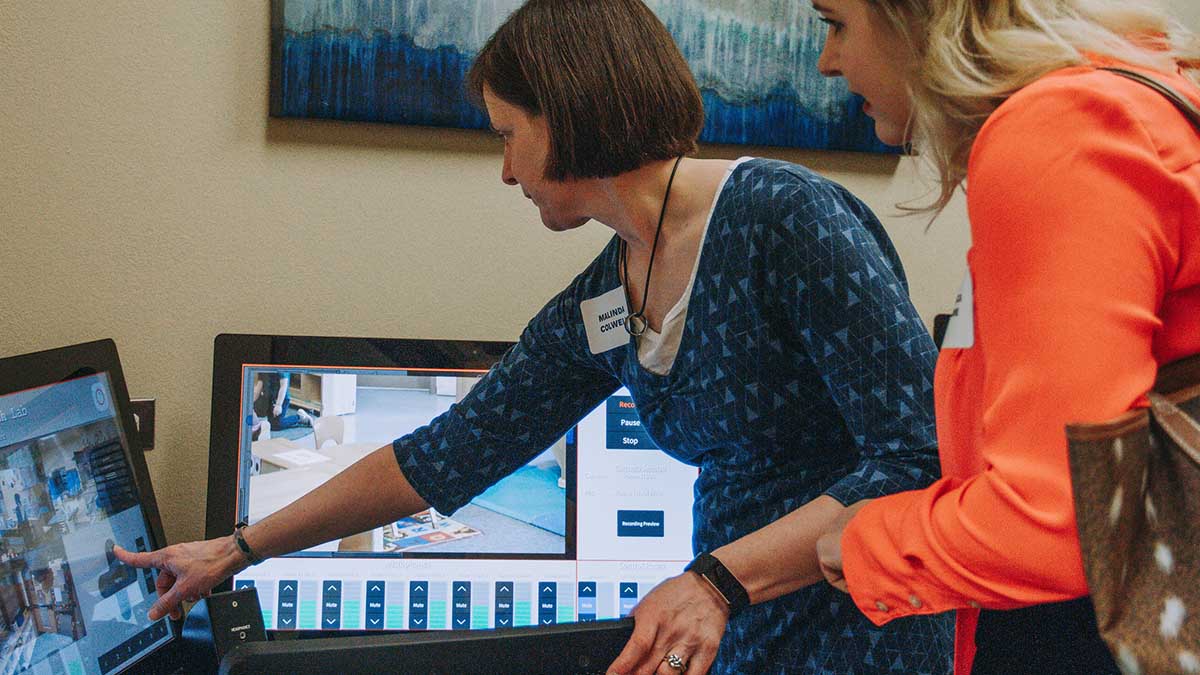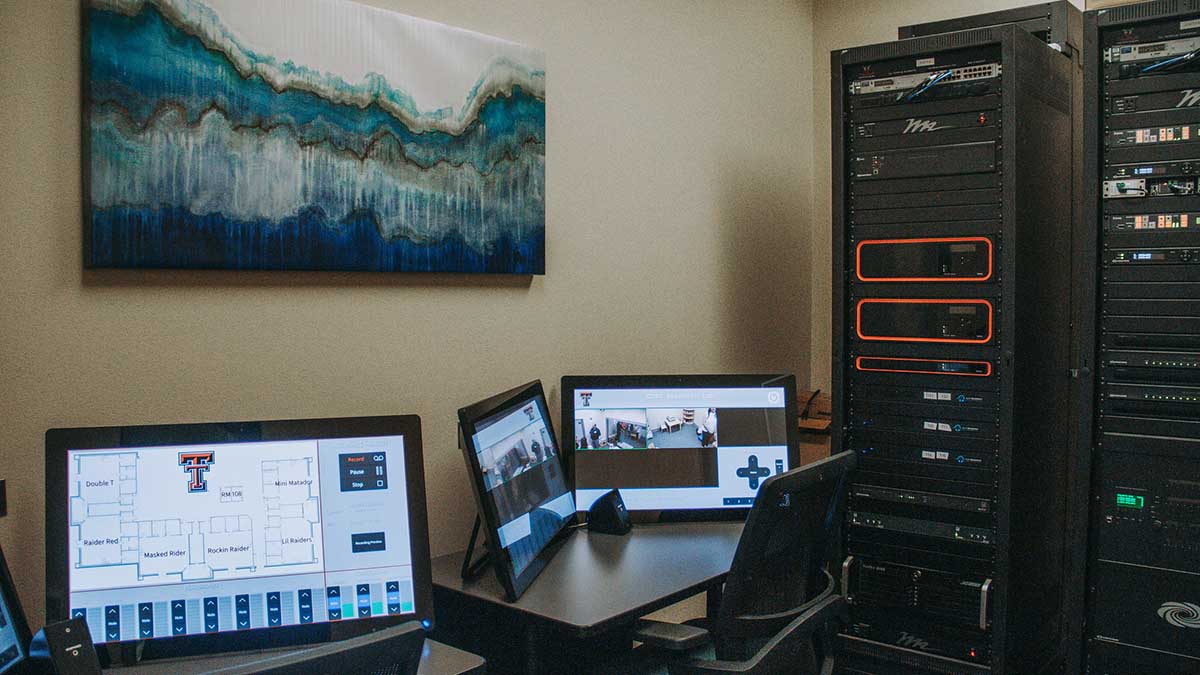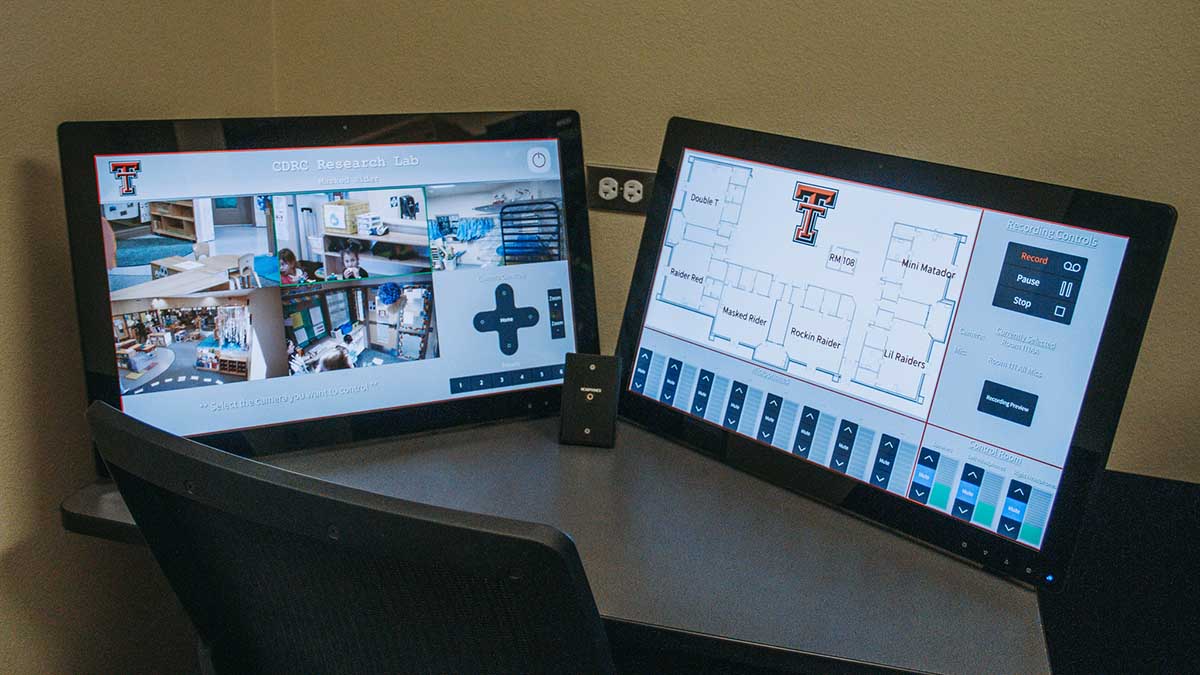Child Development Research Center
Human Development and Family Sciences
Research Projects
Social Support from Childcare Providers and Maternal Well-Being: Finding Relationships That Matter
Jes Fyall Cardenas, Ph.D. | Malinda J Colwell, Ph.D.
Survey of mothers' experiences of emotional social support from their children's first childcare provider and the connection it has to their overall well-being. Survey also collected data on the childcare choice, perceptions of parenting stress, and demographic information (income, education, etc)
Presentations
Cardenas, J. F. & Colwell, M. J. (2020). Social Support from Childcare Providers and Maternal Well Being: Finding Relationships That Matter. 2020 Society for Research in Human Development Conference, Jacksonville, FL. (Conference canceled). http://www.srhdonline.org/uploads/2/0/0/0/20000135/srhd_2020_program.pdf
Cardenas, J. F. & Colwell, M. J. (2021). Emotional social support from childcare providers and maternal well-being: Meaningful impact in early relationships, abstract under review submitted to be presented at the 2021 SRCD Conference in April 2021
Publications in process
Cardenas, J. F. & Colwell, M. J. (in preparation). Social Support from Childcare Providers and Maternal Well-Being: Finding Relationships That Matter.
Rollercoaster of Emotions: Association between Children's Self-regulatory Effectiveness, Executive Functioning, and Social and Emotional Competence
Leslie Hasty, Malinda Colwell, Ph.D., Michael Dane Rivas-Koehl, Michaela Quintero, Emily Moeller, Beth Phelps
We investigated the relationship between children's self-regulatory strategy effectiveness, their executive function skills, and their perceived social and emotional competence. Children's executive function skills were assessed by having them take part in a Pencil Tapping and a Head, Shoulders, Knees, and Toes game. Children's self-regulatory effectiveness was assessed using puppets in which the children helped the researchers make decisions about what to do during a happy, sad, and angry scenario. Parents and teachers completed a questionnaire to obtain information regarding children's social and emotional competence. We found that that children who have the ability to inhibit their behavior and have better behavior regulation capabilities have better prosocial, emotion regulation, and attentional focus skills.
Hasty, L., Colwell, M. (under review). Rollercoaster of Emotions: Association between Children's Self-regulatory Effectiveness, Executive Functioning, and Social and Emotional Competence. Poster, Society for Research in Child Development Biennial Meeting.
Hasty, L., Colwell, M., Rivas-Koehl, M., Quintero, M., Moeller, E., & Phelps, B. (2020). Rollercoaster of Emotions: Moderating Effects of Self-Regulation Strategies on Children's Executive Functioning. Poster, Texas Tech Graduate Student Poster Competition.
Play Types of Children's Outdoor Learning Environments
Emily Moeller, Malinda Colwell, Ph.D., Muntazar Monsur, Ph.D., Leslie Hasty, Dane Rivas-Koehl, Beth Phelps, and Elli Nahirafee
This study investigated how elements of the outdoor learning environment are associated with children's body play (e.g., climbing, jumping), object play (e.g., loose part play), learning play (e.g., games with rules), and pretend play (e.g., dramatic play). A total of 33 preschoolers were observed during outdoor time at the CDRC. Behavior mapping (ArcGIS Mapping Software) was used to record data about the behavior patterns of children in specific locations throughout the playground across 4 days. Across all observations, body play and object play were the most commonly recorded types of play. Many of the children's interactions also occurred in groups of 2 or more. Linking the type of play with aspects of the environment provide guidance to designers and early childhood educators about design features associated with different types of play. Emily Moeller shared results of this study in a poster presentation at the Spring 2020 Undergraduate Research Conference: https://www.depts.ttu.edu/true/urc/2020/presentations.php
Parents' Beliefs about Gender and Raising Children
Dane Rivas-Koehl and Malinda Colwell, Ph.D.
The goal of our study is to investigate parents' beliefs about gender and gender socialization in their day to day lives, as well as how those raising children learn information about gender. Parents or guardians raising children between the ages of 0 – 11 years old are invited to complete a 25-minute survey that includes basic demographic questions, questions about their personality, opinions about tasks that a child could participate in, and how they learn about gender. If you are interested in participating, please contact Dr. Malinda Colwell at malinda.colwell@ttu.edu or Dane Rivas-Koehl at dane.rivas-koehl@ttu.edu.
Preschool Children's Emotion Regulation and Sibling Relationships
Beth Phelps and Malinda Colwell, Ph.D.
The goal of our study is to investigate the relationship between preschooler's emotion regulation and their sibling relationship. Parents or guardians with a preschool aged child between the ages of 3 and 5 with a sibling who is 1.5 to 3 years older than the preschooler are invited to complete a short survey. Questions with include basic demographics questions, feelings and experiences with COVID-19, preschooler's emotion regulation, the quality of the sibling relationships, and the family emotional climate. If you are interested in participating, please contact Dr. Malinda Colwell
Batool Alsayedhassan, TTU College of Education
We are investigating the effects of parents' training and the use of the Picture Exchange
Communication System (PECS) to help their children with autism spectrum disorder to
develop communication skills while providing immediate feedback to parents using Bug-in-Ear
(BIE). The parents receive training from the investigator to implement PECS Phases
I through IIIB with their children with autism. The investigators implement parents'
training by using a combination of multiple components, such as written and verbal
instruction, in vivo modeling, practice, and feedback. Then, parents use PECS with
their children with autism at therapy room that include one-way-mirror and receive
feedback through BIE from the investigator. The BIE is used to reduce errors when
parents implement PECS with their children with autism.
For more information, please email Batool at Batool.Alsayedhassan@ttu.edu.
Yoojin Chae, Ph.D., College of Human Sciences
My research focuses on children's memory. In particular, I have been devoted to a wide range of research on children's eyewitness ability and suggestibility, trauma and memory, emotion and memory, language and memory, forensic interview techniques, and adults' discernment of children's true and false memory. For instance, I have examined memory and suggestibility of maltreated children in relation to trauma-related psychopathology (e.g., dissociation, PTSD). I have also conducted a series of studies to explore the link between attachment and memory for distressing events, and have recently expanded my work to the study of children's visual attention as a possible mediator of the attachment-memory relation. In addition, I have studied the effects of interviewing techniques and language skill on low-SES children's eyewitness memory.
We are currently recruiting preschool-aged children and their parents. Interested parents and children are asked to visit our laboratory at Texas Tech University for completion of various interview questions, cognitive-developmental tests, and questionnaires. For more information, please email Dr. Chae at yoojin.chae@ttu.edu
Malinda Colwell, Ph.D., College of Human Sciences
The Texas Tech University Child Development Research Center Database project by Dr. Malinda Colwell is an on-going project now in its eighth year. The project focuses on understanding young children's social and emotional development and seeks to answer questions such as “What do preschoolers know about emotions?” “What social skills do preschoolers have?” “How does children's social and emotional competence change from the toddler to the preschool years?” This research is done by conducting a series of interviews with children between two and five years old that are done in the form of games. The interviews are conducted by Dr. Colwell and her graduate and undergraduate research assistants. For more information, please email Dr. Colwell at malinda.colwell@ttu.edu.
Sybil Hart, Ph.D., College of Human Sciences
The "Big Sib" study aims to develop a method to help parents and young children adjust to a newborn sibling's arrival. This is a period of transition that is challenging for some children, and especially difficult to address in toddlers due to their limited language skills. We are looking for ways to identify vulnerable children before the baby arrives, so that we can develop a preventive approach toward building strong sibling bonds. For more information, please email Dr. Hart at sybil.hart@ttu.edu.
Sylvia Niehuis, Ph.D., College of Human Sciences
My program of research focuses on the development of premarital relationships within various ecological contexts, such as family, peer groups, and culture. I explore whether and how couples' courtship experiences bear upon their subsequent marital relationship, using dyadic, longitudinal data. For example, I have examined how various premarital events (such as pregnancy) and courtship experiences (such as cohabitation) influence the likelihood and timing of marital disruption. I have also studied interpersonal psychological processes that move couples toward marriage and, in particular, the interplay between those dyadic processes and long-term marital outcomes. For instance, I have looked at how individuals build up overly favorable perceptions of their partners' qualities and how disillusionment may later emerge as perceivers' lofty impressions of their partners succumb to the more realistic, less glamorous daily experiences of ongoing relationships. Currently, I study romantic relationships and brain activity using functional magnetic resonance imaging (fMRI). To learn how to become a participant in current projects, please send an email to hs.smitten@ttu.edu. Prospective students interested in becoming involved in our lab should check out our Lab Members page. Undergraduates interested in volunteering or for course credit are encouraged to read the lab guidelines and submit an application to Dr. Niehuis or Rebecca Oldham.
Wonjung Oh, Ph.D., College of Human Sciences
Child Development and Relationships Laboratory
(501F and 501E, Human Sciences)
"How can we help children and families as they make the School Transitions from Preschool to Elementary School?"
The proposed study 'The Transitions to Kindergarten' (Year 2015-2016) is to investigate the interplay of social and psychophysiological factors of children, their mothers and fathers in facilitating children's behavioral and emotional regulation, peer relations and school adjustment across the school transition from preschool to kindergarten. The school transition from a small, familiar preschool to a larger, unfamiliar elementary school can be especially stressful for some children who are shy and anxious. This study will allow us to better understand the processes by which children's biosocial characteristics and family factors are associated with the successful school transitions. The research projects in my lab, the Child Development and Relationships Laboratory, would be interested in recruiting preschoolers and elementary school students, along with their family members – especially, fathers and siblings. For more information, please email Dr. Oh at wonjung.oh@ttu.edu
Child Development Research Center
-
Address
15th Street and Akron, Box 41230, Texas Tech University, Lubbock, Texas 79409-1230 -
Phone
806.742.3016 -
Email
cdrc@ttu.edu



